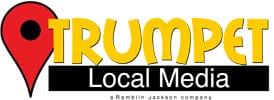In a Nutshell, these are the elements of Local SEO campaign:
1. Search Engine Listings: Google Places, Yahoo Local, and Bing Local Search – Most important of these is Google Places (now called “Google My Business”). Having accurate and consistent information is critical to your online presence and rankings.
2. Accurate & Consistent information in what’s known as Google’s “Trusted Data Providers” – business directories online where Google collects data about your business. Inconsistent data (especially Name, Address, Phone) can ruin local rankings.
3. Citation Building: Citations are online mentions of your business. More citations are better but they need to be consistent and accurate.
4. Niche Industry & Hyper-local directories: In Googles opinion, if your business (Chiropractor in Denver for example) is legit then it would be listed in (specialized directories of chiropractors and also denver-specific directories).
5. Other Local factors: Having online reviews about your business is very helpful, as it enhances trust that customers are engaging with your business. Quantity of reviews matters. Has anyone included your business on custom Google maps? Are you engaged in Social Media locally?
6. Website SEO & Link-building: Currently the top 3 or 4 listings in Local are known as “blended listings”. Blended listings take info from Google Maps algorithm and the Googles Organic Search Algorithm to establish ranking. The strength of the businesses website SEO & inbound links are very important factors for ranking.
Potential Issues with Local SEO that may need to be addressed:
1. Reputation management: If your business already ranks well, does your ranking positively reflect your business?
2. Inconsistent Information. Inaccurate data diminishes trust and thus reduces ranking potential. Citation “clean up work” can be tricky and exhaustive. The culprit is often an address change or the previous use of call-tracking phone numbers in advertising.
3. Mystery Problems: There are a myriad of potential issues that may need research to uncover: the use of an 800#, a previous violation of Google Places guidelines, claimed listings in multiple accounts, & misplaced map marker pins are some examples.
